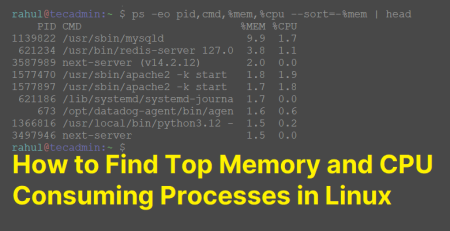When working with Laravel, a popular PHP framework, you may encounter various challenges. One such issue pertains to encryption, which is a critical aspect of securing data within web applications. Laravel uses OpenSSL for encryption and supports specific ciphers, namely AES-128-CBC, AES-256-CBC, AES-128-GCM, and AES-256-GCM. If you try to use an unsupported cipher or an incorrect key length, Laravel will throw an error. In this document, we discuss such an error and outline steps to rectify it.
The Error
When trying to utilize Laravel’s Encrypter, you may come across an error message like this:
This error signifies an issue with the provided cipher or the key length. Understanding and rectifying this issue is crucial to maintain the security of your Laravel application. In the following section, we explain the reasons for this error and provide a step-by-step guide to solving it.
The Solution
This error message indicates that your encryption cipher or key length is not supported by Laravel’s Encrypter.
The error suggests that the acceptable encryption ciphers are:
- AES-128-CBC
- AES-256-CBC
- AES-128-GCM
- AES-256-GCM
The most likely cause of this error is that the key length you’ve provided is not the correct length for the specified cipher. For example, `AES-128-CBC` and `AES-128-GCM` require a 16-byte (or 128-bit) key, while `AES-256-CBC` and `AES-256-GCM` require a 32-byte (or 256-bit) key.
Here’s how you can fix this:
- Make sure you are using one of the supported ciphers. Check your `config/app.php` file and look for
'cipher' => 'AES-256-CBC',. Make sure that the cipher is one of the four listed above.
- Check your application key. Laravel uses a base64-encoded string as the application key, which should be 16 bytes for 128-bit encryption and 32 bytes for 256-bit encryption. In the .env file, make sure your `APP_KEY` is of the correct length.

- You can generate a new key by running `php artisan key:generate` from the command line in your Laravel project directory. This will generate a new key and update your `.env` file.
php artisan key:generate - If the error persists after these steps, you may want to ensure that the PHP OpenSSL extension is properly installed and enabled. You can check this by creating a phpinfo.php file with the following content:1<?php phpinfo(); ?>
Then, navigate to this file in your web browser. You should see a section for OpenSSL, indicating that it is installed and enabled.
Note: If you’ve made changes to your `.env` file or `config/app.php`, remember to clear the config cache by running the following command line.
php artisan config:cache
Conclusion
Encryption is a crucial element in the security of web applications, safeguarding sensitive data from unauthorized access. Laravel’s encryption capabilities are robust and designed to support some of the most secure encryption ciphers like AES-128-CBC, AES-256-CBC, AES-128-GCM, and AES-256-GCM. However, issues such as unsupported ciphers or incorrect key lengths can lead to errors.
Understanding these encryption-related errors and knowing how to rectify them is an integral part of managing Laravel applications. By following the provided troubleshooting steps, you can ensure that your application uses the correct cipher and key length, aligning with Laravel’s Encrypter requirements.

